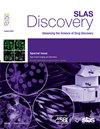m6A在脂质代谢相关疾病中的作用。
IF 2.7
4区 生物学
Q2 BIOCHEMICAL RESEARCH METHODS
引用次数: 0
摘要
n6 -甲基腺苷修饰是真核生物中最丰富的RNA表观遗传修饰之一。这种修饰通过m6A甲基转移酶、去甲基化酶和识别蛋白的作用,在各种RNA加工事件中起着至关重要的作用,从而影响广泛的生物过程。值得注意的是,m6A修饰在脂质代谢中的意义及其潜在的分子调控机制正越来越多地被阐明。脂质代谢的调节与能量稳态的维持有着复杂的联系,脂质代谢的中断是许多疾病的特征,包括肥胖、非酒精性脂肪性肝病和心血管疾病。本文就m6A修饰在肥胖、非酒精性脂肪肝、心血管动脉粥样硬化等脂质代谢相关疾病中的关键作用及分子机制进行综述。此外,它还介绍了针对m6A调节因子的药理学试剂、植物提取物和小分子化合物。这项工作为未来针对m6A修饰治疗脂质代谢相关疾病的治疗策略的制定提供了理论参考。本文章由计算机程序翻译,如有差异,请以英文原文为准。
The role of m6A in lipid metabolism-related diseases
N6-methyladenosine (m6A) modification represents one of the most abundant RNA epigenetic modifications in eukaryote organisms. This modification plays a crucial role in various RNA processing events through the actions of m6A methyltransferases, demethylases, and recognition proteins, thereby influencing a wide array of biological processes. Notably, the significance of m6A modification in lipid metabolism, along with its underlying molecular regulatory mechanisms, is increasingly being elucidated. The regulation of lipid metabolism is intricately linked to the maintenance of energy homeostasis, and disruptions in lipid metabolism are characteristic of numerous diseases, including obesity, non-alcoholic fatty liver disease, and cardiovascular disease. This review comprehensively summarizes the pivotal role and molecular mechanisms of m6A modification in diseases related to lipid metabolism, such as obesity, non-alcoholic fatty liver disease, and cardiovascular atherosclerosis. Additionally, it introduces pharmacological agents, plant extracts, and small molecule compounds that target m6A regulatory factors. This work provides theoretical references for the development of future therapeutic strategies targeting m6A modifications to treat diseases related to lipid metabolism.
求助全文
通过发布文献求助,成功后即可免费获取论文全文。
去求助
来源期刊

SLAS Discovery
Chemistry-Analytical Chemistry
CiteScore
7.00
自引率
3.20%
发文量
58
审稿时长
39 days
期刊介绍:
Advancing Life Sciences R&D: SLAS Discovery reports how scientists develop and utilize novel technologies and/or approaches to provide and characterize chemical and biological tools to understand and treat human disease.
SLAS Discovery is a peer-reviewed journal that publishes scientific reports that enable and improve target validation, evaluate current drug discovery technologies, provide novel research tools, and incorporate research approaches that enhance depth of knowledge and drug discovery success.
SLAS Discovery emphasizes scientific and technical advances in target identification/validation (including chemical probes, RNA silencing, gene editing technologies); biomarker discovery; assay development; virtual, medium- or high-throughput screening (biochemical and biological, biophysical, phenotypic, toxicological, ADME); lead generation/optimization; chemical biology; and informatics (data analysis, image analysis, statistics, bio- and chemo-informatics). Review articles on target biology, new paradigms in drug discovery and advances in drug discovery technologies.
SLAS Discovery is of particular interest to those involved in analytical chemistry, applied microbiology, automation, biochemistry, bioengineering, biomedical optics, biotechnology, bioinformatics, cell biology, DNA science and technology, genetics, information technology, medicinal chemistry, molecular biology, natural products chemistry, organic chemistry, pharmacology, spectroscopy, and toxicology.
SLAS Discovery is a member of the Committee on Publication Ethics (COPE) and was published previously (1996-2016) as the Journal of Biomolecular Screening (JBS).
 求助内容:
求助内容: 应助结果提醒方式:
应助结果提醒方式:


